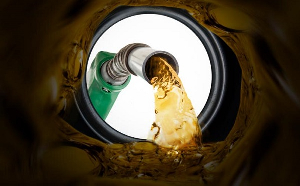South Africa in collaboration with the Ghana Tourism Authority is set to embark on training and exchange programmes across the country in an effort to give Ghana’s tourist sector a maximum boost.
According to the South African High Commissioner to Ghana, the move has become of essence to ensure the uncontrolled wastes plaguing several parts of the country’s tourist sites is curbed in order to give the struggling sector a major facelift.
Speaking to GhanaWeb, Lulu Xingwana indicated that tourism in Ghana has great potentials of surviving, however the poor waste management system in the country has hindered its growth owing to the number of foreigners who set out for cleaner water bodies and serene environment for relaxation.
“What has been a concern is that the water bodies are not very clean. The waste management in that area is not done properly, so we have decided that we will go there and look at a project where we could assist to encourage environmental protection of the villages through waste management systems that we can ensure are sustainable through training the local community and the youth to enable them manage the waste out there,” she stated.
South Africa's tourism industry is well established, with an exciting sector of emerging entrepreneurs. The country is strong on adventure, sport, nature and wildlife, and is a pioneer and global leader in responsible tourism.
According to statistics, South Africa’s tourism sector accounts for a substantial amount of the country's revenue with about 102 billion South African Rand contributing to its GDP in 2012.
It is in this regard that the South African envoy believes Ghana’s engagement with South African tourist expects would contribute to the rapid progress of local tourism and reflect in the country’s economy.
Madam Lulu Xingwana also called for the establishment of technological innovative structures in order to recycle waste products into useful resources.
“…there is a Memorandum of Understanding between our department of tourism and the Ghana Ministry of Tourism and part of that includes sharing experiences, exchange programmes as well training and transferring skills and technology… the waste can be turned into fertilizer, plastics can be recycled into furniture that you can sell and that means creating of jobs and businesses out of that. So those are some of the experiences and expertise that we think we can share with Ghanaians,” she stressed.
Ambassssdor Lulu Xingwana was speaking at a stakeholder consultation forum organised by the Ghana-South Africa Business Chamber and the South African High Commission Accra on “Strengthening trade ties between Ghana and South Africa” in Accra Monday.
Tourists abandon Ghana beaches
Tourists visiting the country are gradually getting fed up with the insanitary state of most of the tourist sites, particularly the beaches.
Many have vowed never to go bathing in Ghana’s ocean due to the indiscriminate practice of open defecation along the shores of the beaches
This act, according to the tourists is unacceptable and must be discouraged.
La Pleasure Beach Resort closed down over insanitary conditions
The Ghana Tourism Authority in recent time closed down the La Pleasure Beach Resort in Accra over poor sanitary conditions at the facility.
The Bamboo Pub and Accra Del Mar Restaurant at the Titanic Beach Resort on the Sakumono-Tema Beach road also in Accra were closed down for similar offences in clear violation of the Tourism Act (LI 1205, Accommodation and Catering Enterprises Regulation).
The GTA and EPA in their joint operation have set various timelines of activities to ensure immediate, short, medium and long term actions are undertaken by management of leisure centres to revamp the facilities.
It followed an increasing public outcry over the deplorable conditions of some hospitality institutions in the country and the danger or discomfort it posed to patrons.
General News of Tuesday, 19 June 2018
Source: www.ghanaweb.com
South Africa partners Ghana to manage waste at tourist sites
Entertainment
















